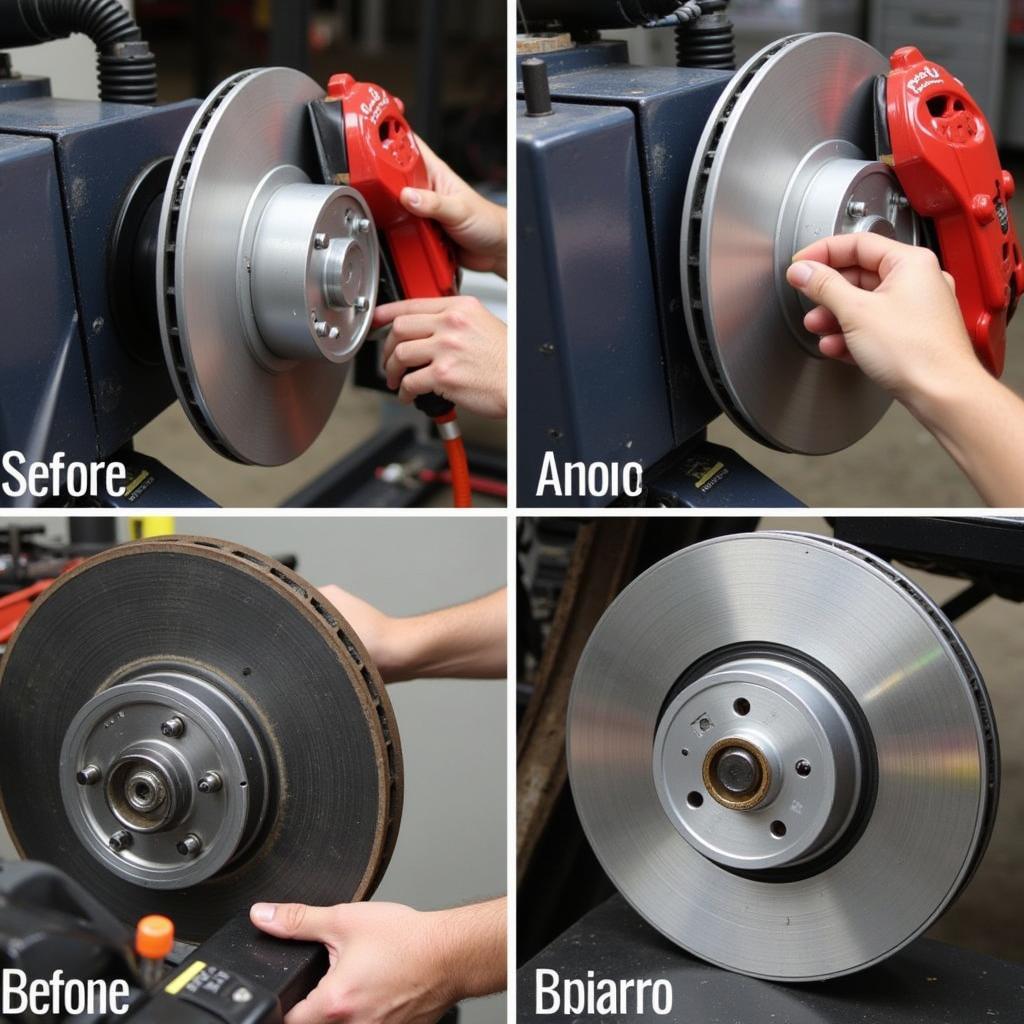Hearing a strange noise coming from your brakes? If it sounds like metal scraping and you’ve noticed a decrease in braking performance, you might be dealing with worn-out brake warning metal clips. These small but mighty components play a crucial role in your car’s safety, and ignoring them can lead to costly repairs and potentially dangerous driving situations.
What are Brake Warning Metal Clips?
Brake warning metal clips, sometimes referred to as brake indicators or wear sensors, are thin pieces of metal attached to your brake pads. They are designed to create an audible warning – that telltale screeching sound – when your brake pads are nearing the end of their lifespan. This alert system gives you ample time to replace your brake pads before they wear down completely, preventing damage to the rotors and calipers.
Why are Brake Warning Metal Clips Important?
Driving with worn brake pads can have serious consequences:
- Reduced braking efficiency: As your brake pads wear down, your stopping distance increases, putting you at a greater risk of accidents.
- Damage to brake rotors: Driving with metal-on-metal contact will quickly damage your brake rotors, requiring costly repairs or even replacements.
- Compromised safety: Ignoring the warning signs of worn brake pads compromises your safety and the safety of others on the road.
What to Do When Your Brake Warning Metal Clips Start Making Noise
If you hear a high-pitched squealing or screeching when you apply the brakes, it’s time to take your car to a qualified mechanic. Here’s what you can expect:
- Inspection: The mechanic will visually inspect your brake pads and rotors to assess the extent of the wear.
- Brake Pad Replacement: If the brake pads are worn down to the metal clips, they will need to be replaced.
- Rotor Resurfacing or Replacement: Depending on their condition, your brake rotors may need to be resurfaced or replaced.
Can I Continue Driving with Noisy Brake Warning Clips?
While you may be tempted to continue driving with noisy brake warning clips, it’s highly discouraged. Continuing to drive in this condition will only exacerbate the problem and potentially lead to more expensive repairs.
“Think of it like this,” says John Smith, a certified automotive technician with over 20 years of experience, “ignoring your brake warning clips is like ignoring a low fuel light. It’s your car’s way of telling you there’s a problem that needs attention.”
How to Prevent Premature Wear of Brake Warning Metal Clips
While some wear and tear is inevitable, you can prolong the life of your brake pads and warning clips by adopting good driving habits:
- Avoid hard braking: Anticipate stops and slow down gradually whenever possible.
- Maintain a safe following distance: This allows for more reaction time and reduces the need for sudden braking.
- Have your brakes inspected regularly: Following your car manufacturer’s recommended maintenance schedule can help identify and address potential brake problems early on.
 Brake Rotor Resurfacing
Brake Rotor Resurfacing
FAQs about Brake Warning Metal Clips:
1. How long can I drive with brake warning clips making noise?
It’s not recommended to drive with noisy brake warning clips at all. The noise indicates that the brake pads are nearing the end of their life, and continuing to drive will worsen the damage.
2. Can I replace just the brake warning clips?
Brake warning clips are typically integrated into the brake pad itself and cannot be replaced separately.
3. How much does it cost to replace brake pads and rotors?
The cost of brake pad and rotor replacement varies depending on your car’s make and model, as well as labor costs in your area.
4. Can I replace my brake pads myself?
While it’s possible to replace brake pads yourself, it’s a job best left to qualified mechanics. Brake systems are critical safety components and require specialized tools and expertise.
5. How often should I have my brakes inspected?
It’s generally recommended to have your brakes inspected at least once a year or every 12,000 miles.
Conclusion
Don’t underestimate the importance of those little metal clips on your brake pads. They serve as a crucial early warning system for your car’s braking system. By heeding their warning and addressing the issue promptly, you can ensure optimal braking performance, prevent costly repairs, and most importantly, stay safe on the road.
